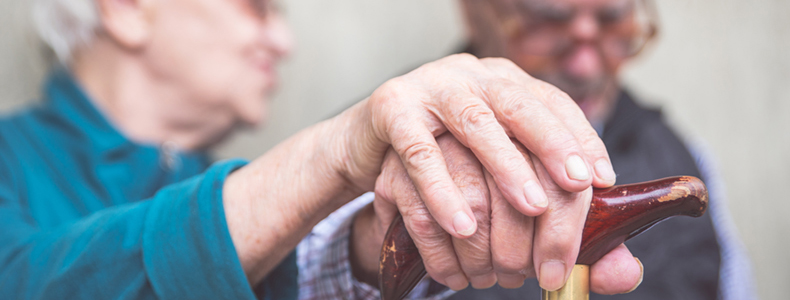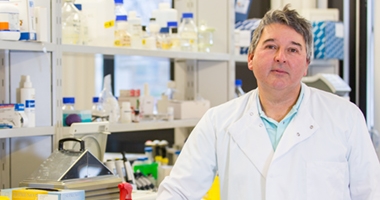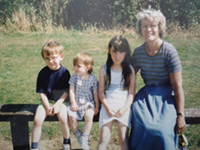
You can help transform the world of dementia
Most of us will know someone touched by dementia yet dementia research only receives 3% of the UK’s medical research funding.
Our dedicated researchers are using powerful MRI technologies, first developed here in Nottingham, to pave the way towards an earlier diagnosis and personalised treatments. Together, we can transform the lives of dementia patients, and their carers.
It only takes three people to each give £75 to help fund a day of dementia research.
Push dementia research forward

"We know that Alzheimer's is caused by a mixture of genetic and environmental factors. Discovering the genetic causes will help us better target our treatments and identify those most likely to be affected earlier, significantly improving the lives of those touched by this devastating disease."
Professor Kevin Morgan
Our unique research
We are the only UK university using Dynamic Nuclear Polarization (DNP) to research dementia.
This technology is ten thousand times more sensitive than conventional MRI scanning, meaning that we can detect never-seen-before changes happening within the brain.
Currently, we can only diagnose dementia once damage to the brain has started. DNP technology gives us the opportunity to look for the minute chemical changes that occur first. If we can pick up these early signs, we can give treatment before the disease develops.
We believe DNP could offer a breakthrough in dementia research. It has the potential to pave the way towards developing tests for earlier diagnosis and move us one step closer towards developing treatments that can be tailored to the needs of individual patients.
Championing outstanding dementia care
The first MRI scanner was developed at our University in 1976 by an expert team led by the late Sir Peter Mansfield, who won the Nobel prize for Medicine in 2003. Since those early days, we have continued to lead the world in developing MRI technology as a diagnostic medical tool.
While we search for a cure, we also know the need to care for those already suffering from the condition is stronger than ever. By 2050, it's predicted that 135 million people will be affected by dementia. One in three of us is likely to have a friend or loved one affected by dementia.
This is why we work closely with healthcare services to bring academics and practitioners together through our Institute of Mental Health (IMH) - all with a focus on improving care and quality of life.
Ellen's story
"Last year, I ran the Wollaton Park 10K and raised over £400 for dementia research. 15 years ago my Grandma (Granny to me) was diagnosed with Alzheimer’s. This came after years of questions about her severe forgetfulness. One day she got lost in Beeston, a place she’d lived in for decades. Missing for hours, we were worried about her, wondering where she was, not knowing what had happened.
"This is why dementia research is so important- no-one should have to lose someone twice. Alzheimer's strips away the person you love, so that all that's left is a shell of the person you knew. I am proud that the University of Nottingham is paving the way."
Ellen McGhee

How you can help
Nottingham research aims to help memories live on in the mind, not just in photographs. Thanks to the generous support of alumni and friends, our researchers are focused on making earlier diagnosis, and better treatment, a reality. Your support could be the catalyst.
Help create a world free from dementia